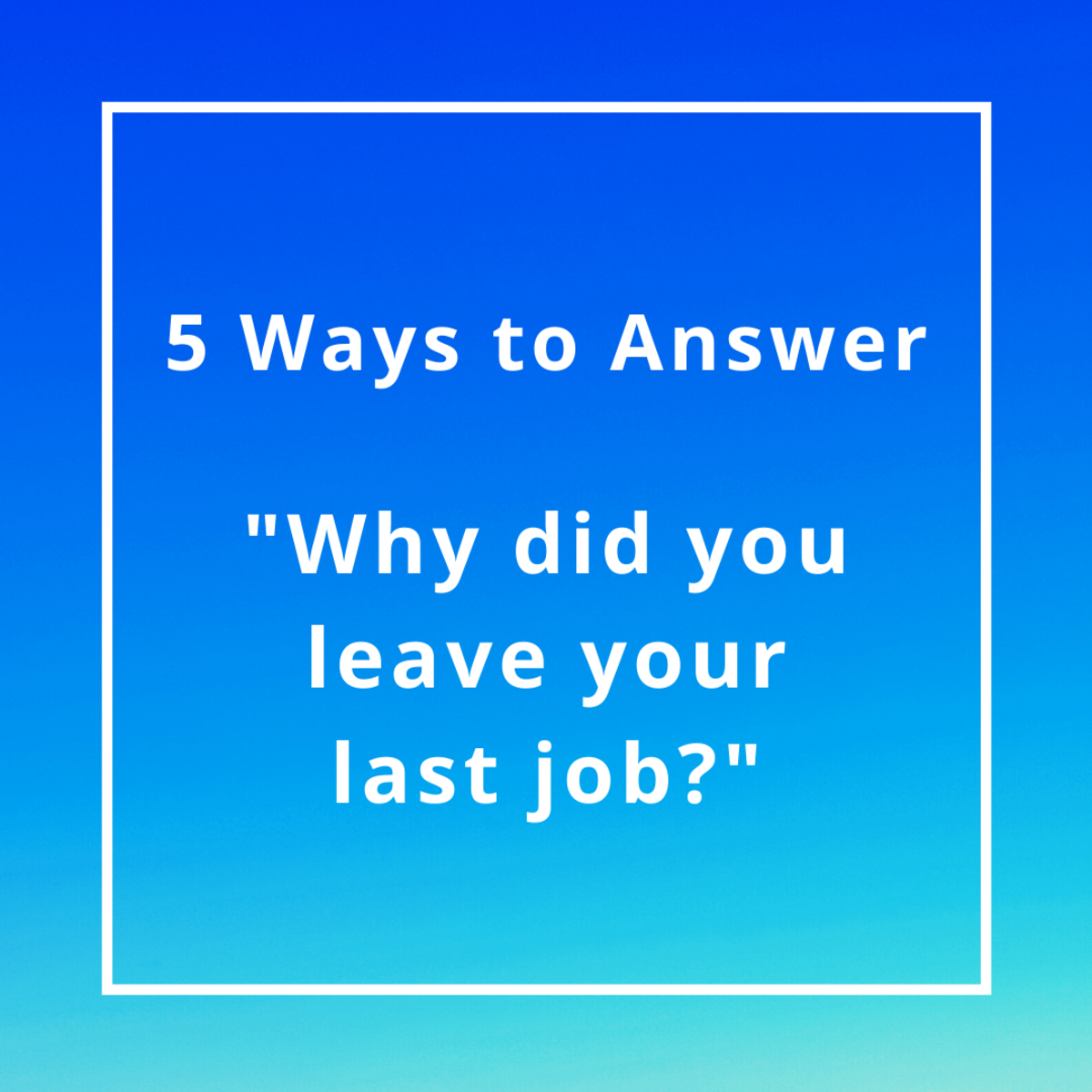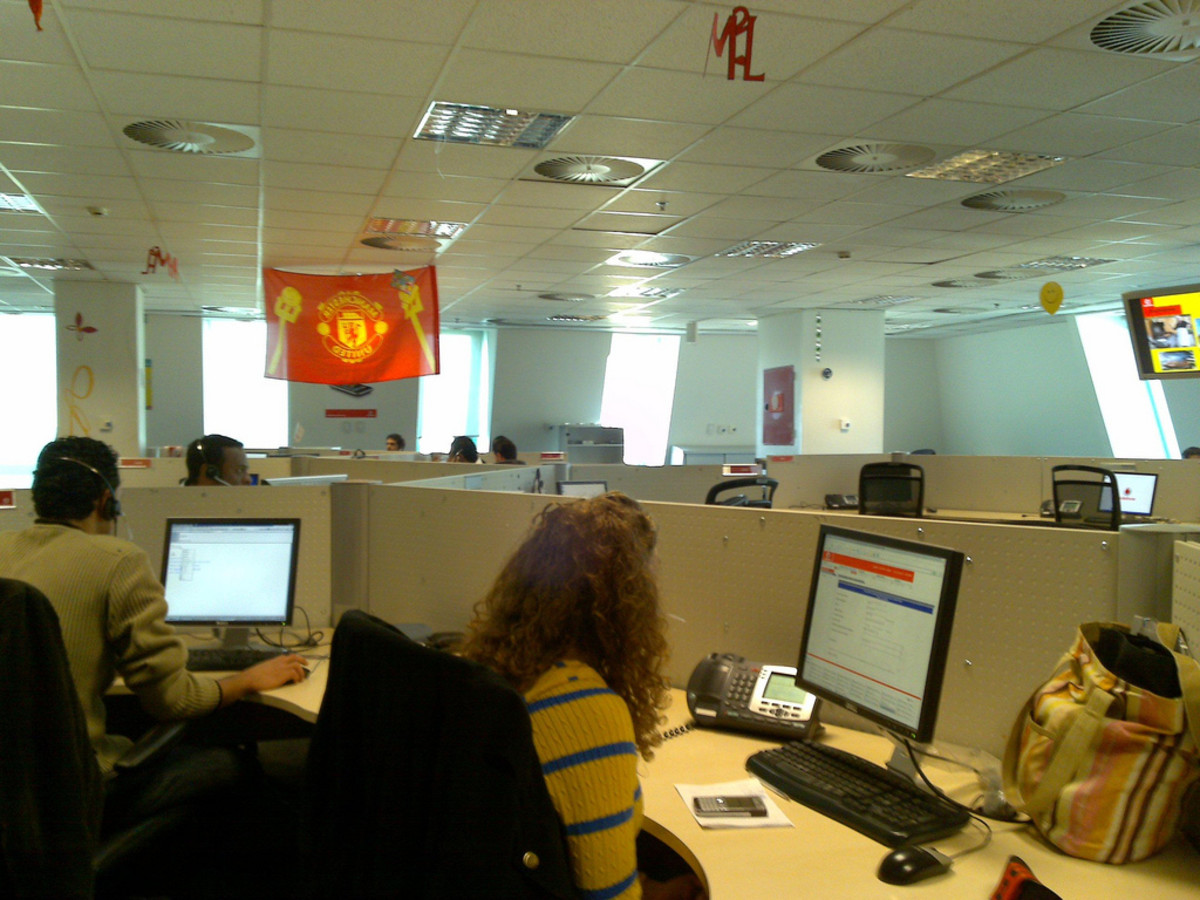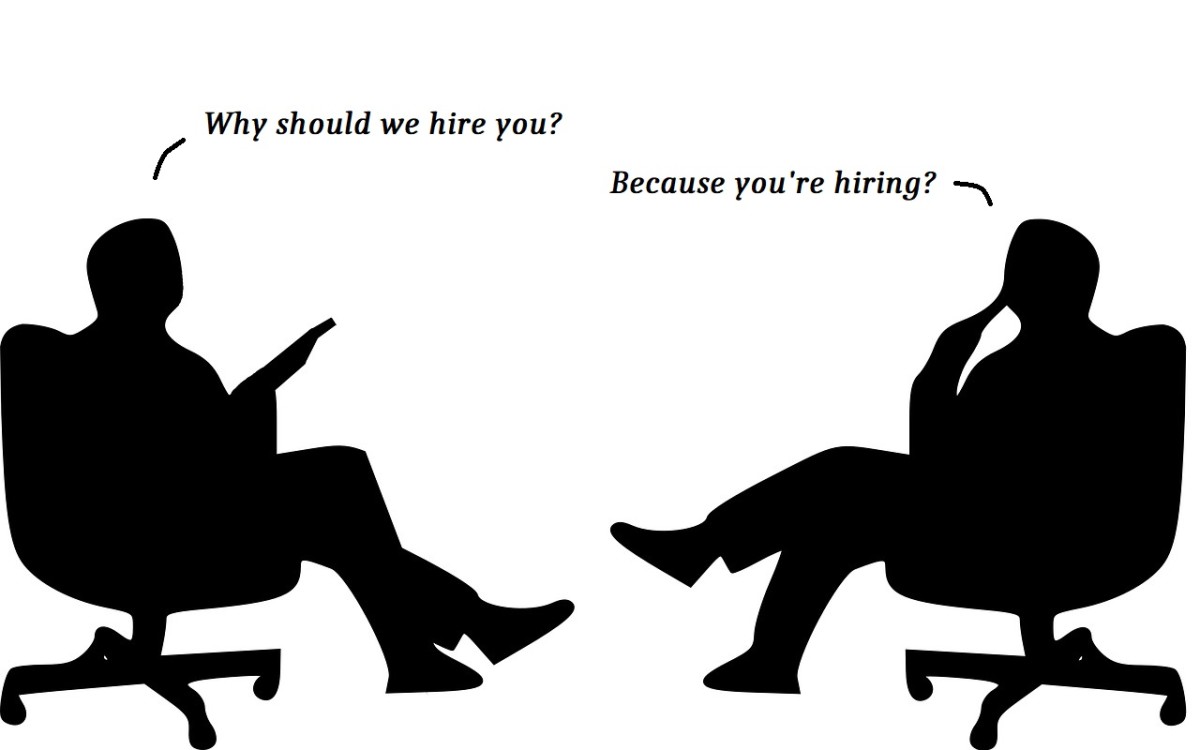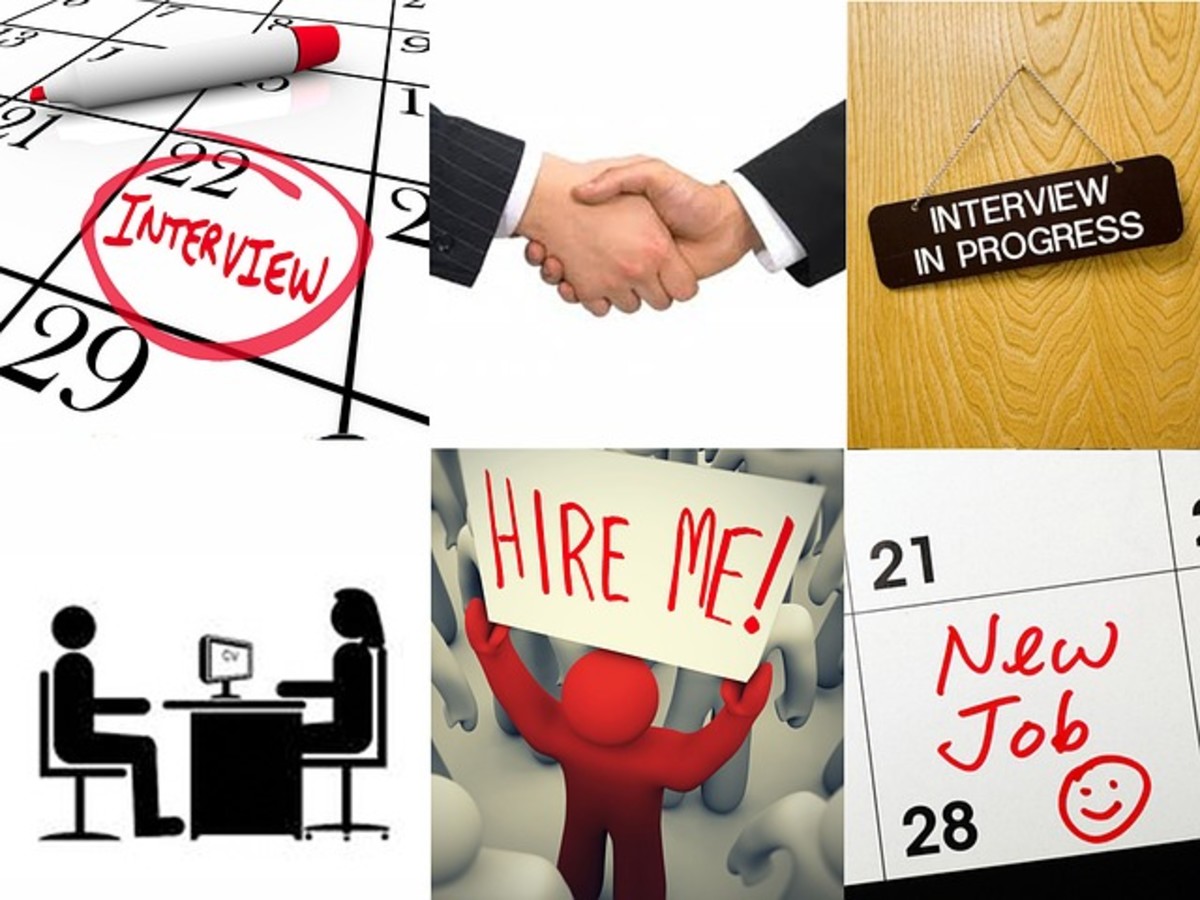- HubPages»
- Business and Employment»
- Employment & Jobs»
- Interviewing for a Job
Questions to Ask at a Job Interview

Why Should You Ask Questions?
In short, it shows you are interested in the job role and company to which you are interviewing. All too often, candidates just want to run out the door at the end of the interview and breathe a sigh of relief that it’s over but preparing some good quality questions in advance can set you apart from those who haven’t.
Aside from showing your interest, asking questions gives you the opportunity to ascertain whether the company is right for you should you be successful in landing the job and can increase your perceived level of professionalism.
Asking just one or two questions is adequate but always have at least four or five at the ready as some may already have been answered as part of the conversation.

What Questions Should Not be Asked at an Interview?
Avoid asking questions about salary unless the interviewer has specifically raised the subject by inviting you to discuss your requirements. Wait until you have landed the job before talking about money, as it can appear that this is your main motivation. The exception to the rule is if you are interviewing for a sales job where it would be wise to ask questions relating to targets and bonus structures so that the employer can assess your tenacity and drive but only if the subject area has been a hot topic throughout the interview.
Never ask questions such as “What does the company do?” or “What products do you sell?” These will be an absolute deal breaker. Do your research first and find out exactly what your prospective future employer is all about.
Questions about holiday entitlement and flexible working hours are off limits. The interviewer will question why you are concerned with taking time off when you haven’t even started the role yet. It will be detailed in your contract and working terms and conditions so if it’s not favourable then, either negotiate a better deal or decline the job offer.
As a general rule of thumb, you are there to sell how you will be of benefit to the company and not how you could benefit from them.
Avoid asking why the role has become available. Most employers don’t like this as it can put them in an awkward position especially if the last person was fired or left under a cloud. Many interviewers will deem this question as none of your business and let’s face it, the information is not going to make a difference to your interview performance if you find out. If you really do want to know why the vacancy has arisen then change the wording of the question to something along the lines of “Who will be my supervisor?” as this could be a clue as to whether the job is vacant due to a promotion. As with all questions, if you are not sure if you should ask them or if you think there may be negative connotations, keep your lips sealed and choose something else. If in doubt, leave it out.
Over 200 interview questions & answers
Top tip
Take a notebook with you to the interview with your questions written in it. That way, if you are nervous or your mind goes blank, you have the notes to remind you.
It is perfectly acceptable to take notes while in an interview so if a question pops into your head as a result of the conversation, write it down to ask later.
Questions about the working environment
Good questions that show you are interested in the role and are starting to visualise how you will fit in are ones that surround the current team. “How many people are in the team and how is it structured?” This shows that you are considering teamwork and can encourage a descriptive answer from your interviewer.
“What do you like most about working here?” A great question where you can turn the tables and see if there is genuine enthusiasm coming back at you.
“Can you describe to me a typical day in the job?” I hope that they can! This allows you to learn more detail than in the job description and can be used to add any golden nuggets of experience related to the day to day tasks that you may have left out of the interview that are relative to the role. Keep promoting how great you are right to the end of the interview.
Visualising yourself in the role
In addition to asking questions about the working environment, you can go one step further by probing how your performance will be measured what your key priorities will be in the first few months of the job. Other great questions are “What would you say is the most challenging aspect of the role?” or “How would you describe the responsibilities of the position?”
Quick poll
Do you normally ask questions during an interview?
Questions about the company
From your research on the company, you should be able to come up with questions that show you have fully prepared but still want to know more. One of the classic interview questions that you may be asked is “Where do you see yourself in 5 years’ time?” so fire this back at them with “Where do you see the company in 5 years’ time?” or “What are the long term goals of the company?” This will allow you to gain a valuable insight into where the company is heading and if you can see a realistic future with them.
Training and development
Show you are serious and exude ambition and loyalty by asking questions about what training and development opportunities the company offers. How can you climb the career ladder? Find out by asking, “What does the promotional scale look like?” or “If I am successful in this role, what would be a typical career path?” If you are interviewing for a position in a large corporation, you could ask questions about different job roles.

The finishing line
Ok, it’s nearly the end of the interview and you have asked some great quality questions so there are a couple of other questions to help you reach the finishing line. Don’t leave the interview room without ensuring that you have given the interviewer all the positive information they need to view you as a serious contender for the role. Don’t hold them hostage though! That would be just plain wrong!
“Do you have any concerns that we can discuss in more detail in order for me to be the top candidate?” A fully loaded question but a great one if it means saving the day.
“When can I expect to hear from you?” This will allow you to work to a deadline of expectation and give you a time frame in which to send a thank you letter or email and follow up if you haven’t heard any news.
So, make sure you fully prepare questions to ask the interviewer that shows you are enthusiastic, interested and professional. Many candidates don’t bother to put the effort in so if you do, you are already one step ahead on the road to success.









